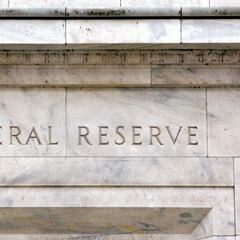When is it good to use autopay for your bills and when should you avoid it?
Using autopay for bills can be convenient, but it’s important to use it wisely because there are disadvantages to setting bills payment automatically.


Setting your bills on autopay can make your life easier, as it saves you time compared to paying your bills manually. You must consider certain factors before setting it up.
Here are some situations in which using autopay can be a good idea.
When consistency and timeliness are important
Autopay ensures that your bills are paid on time, reducing the risk of late fees and potential negative impacts on your credit score. If you have a busy schedule or tend to forget payment due dates, autopay can help you stay organized.
Fixed and essential bills
Autopay is well-suited for bills that have a consistent amount due each month and are essential for your basic needs, such as rent or mortgage payments, utilities, insurance premiums, and minimum credit card payments.
Avoiding interruptions in services
Autopay can help prevent interruptions in essential services like electricity, water, or internet, ensuring that your daily life continues without disruption.
Interest savings
For loans with fixed monthly payments, such as car loans or personal loans, autopay can help you make consistent payments and potentially reduce the total interest you pay over the life of the loan.
Rewards and incentives
Some companies offer incentives or rewards for using autopay, such as discounts on your bills or cash back.
READ ALSO: Why are grocery prices going up so much in the US?
However, there are also situations where you might want to exercise caution or reconsider using autopay.
Variable bills
If your bills vary significantly from month to month, such as credit card bills that you pay in full, autopay might result in unexpected withdrawals that could affect your cash flow. It could also result in incorrect payments.
Total US Credit Card debt has crossed above $1 trillion for the first time, rising 16% over the last year. pic.twitter.com/l2Q8HKpXbg
— Charlie Bilello (@charliebilello) August 8, 2023
Budgeting and control
Autopay can make it easier to overspend or lose track of your budget if you’re not actively monitoring your accounts.
Overdraft risk
If you don’t have sufficient funds in your account when autopay withdrawals occur, you could face overdraft fees.
Security concerns
While many companies have secure systems in place for autopay, there’s always a small risk of unauthorized withdrawals if your account is compromised.
READ ALSO: Can you refinance an adjustable-rate mortgage?
Related stories
Before setting up autopay, carefully review your bills, your budget, and your financial situation. Make sure you clearly understand the terms and conditions of autopay arrangements and regularly monitor your accounts to ensure accuracy and prevent any potential issues.
It’s often a good idea to start with essential fixed bills and gradually expand to others as you become more comfortable with the process.

